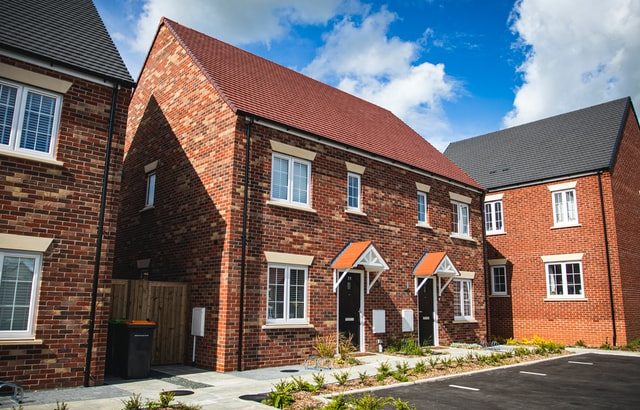If your new-build property doesn’t already have gas and electricity set up, you may need to keep some of your belongings in storage. Here’s how to do it right!
Moving into a newly built property can be extremely satisfying. This is an opportunity to make a home well and truly yours. You won’t need to clear out the last vestiges of those who lived there before you, or replace their antiquated or idiosyncratic decor. You have a completely blank canvas with which to express yourself. But moving to a new build comes with its own set of challenges. It may be unclear who supplies energy to the property as it is not yet occupied. If you’re self-building, you may not even have a gas and electricity supply to the property yet.
As such, you may need to keep some of your belongings in storage until your utilities are set up, and everything is read for you to move in. Work may need to be carried out around the home which would be much easier without having to navigate boxes of belongings. Furthermore, if you need to set up new utility supplies from scratch, it may be several weeks or even months before your new build is habitable. The energy experts at Papernest have some useful advice on setting up gas and electricity in a new build.
How can storage solutions help when moving into a new build?
A storage unit can help you in a number of ways when moving to a new build. It provides you with a dry, secure space to store your belongings while moving. This helps to prevent clutter in your new build while you’re still carrying out last minute work on the property. It can save you money on moving expenses, saving you from having to move all of your belongings at the same time.
A storage unit gives you the luxury of time, so that you can unpack and move your belongings in slowly, without spending your early days in your new home up to your elbows in boxes. Check out this brilliant self-storage price comparison chart to get the best deal.
What should I look for when setting up storage solutions?
While you’re waiting for everything to be ready in your new build, you may choose to keep some (or all) of your belongings in storage. It’s important to do this in a way that’s as flexible and cost-effective as possible for you. As such, these are the things you should look for in a storage services provider…
Free collection
The process of moving is costly enough as it is. Especially if you need to install new gas and electricity connections in your home, which may cost upwards of £3,000 per utility. Look for a storage supplier that will collect your belongings free of charge.
Flexible terms
You may only want to store your belongings for a couple of weeks. Or you may want to keep them in storage long-term to make the most of the usable space in your new home. As such, you should look for a storage service that provides flexible terms built around our needs.
No deposit
You want to keep your upfront costs as manageable as possible, so look for a storage solution that won’t expect you to pay a hefty deposit to secure your unit.
Fixed costs
When moving to a new home, every penny counts! So make sure you choose a storage provider that has fixed costs, sparing you any unpleasant price hikes. All of our storage costs are fixed for 12 months, so you know that you’ll never get any unpleasant surprises when you choose us!
How do I set up utilities in a new build?
A storage unit can help if you need store belongings before setting up utilities in a new build. But what’s the quickest and most cost-effective way to do this?
If you’re building your own property, you’ll need to contact the Distribution Network Operator and Gas Transporter in your area. These are the companies responsible for maintaining, managing and upgrading the National Grid’s gas and electricity network in your area. You can find yours by checking out the Energy Networks website here. They can guide you through the process of setting up a new connection and installing a meter. This typically takes around 6-8 weeks. This is not work that you can legally (or safely) do yourself. However, there is some ‘contestable’ work that may be done by a local contractor, potentially saving you money.
If your property already has a connection, you’ll want to find out who supplies energy to the property. You’ll most likely be on the supplier’s standard variable tariff which is inevitably their most expensive. Especially in the current market. The sooner you switch to a new tariff, the more you could save on energy.
